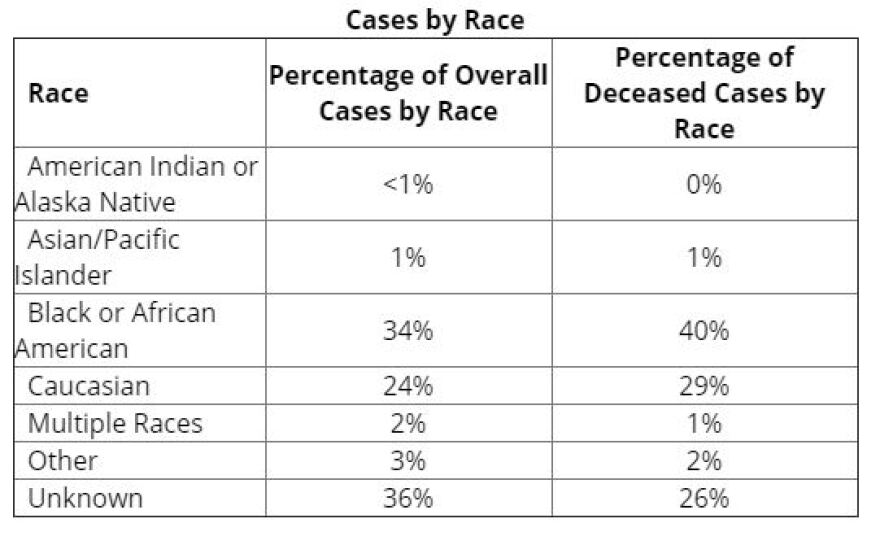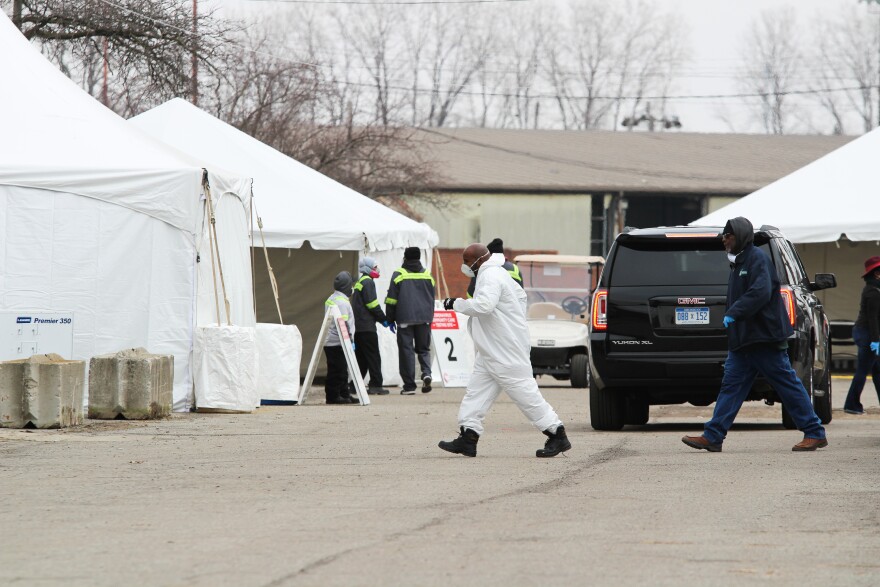Black people make up over a third of all COVID-19 cases in Michigan, according to data the Michigan Department of Health and Human Services released Saturday. And while black people make up only about 12% of the Michigan’s population, they make up about 40% of all COVID-19 deaths reported.
Jon Zelner, a social epidemiologist at the University of Michigan, says the numbers don’t say everything, but there is something that can’t be ignored – inequality.
“No one should be surprised that the classic social inequalities that characterize life in the United States, certainly life in Michigan, would be showing up right now,” Zelner said.
Social inequalities like access to healthcare, access to jobs that are able to be done remotely, and underlying health issues such as diabetes and hypertension are all possible factors that Zelner believes may be contributing to the disparate outcomes.

But Zelner warns, the virus itself doesn’t discriminate. Anyone can get it if they aren’t immune, he says.
“I think there’s this real risk of stigmatizing people who get infected and it might get worse as we go along,” he said.
Susan Ringler-Cerniglia, the Public Information Officer of Washtenaw County, warns that these numbers aren’t the full story.
“The numbers can’t tell us the why, and that’s where there is unfortunately room for speculation and discrimination or prejudice,” Ringler-Cerniglia said.
Washtenaw County, as of Saturday, reported that black people accounted for more than half of all people hospitalized for COVID-19 there.
“Just because we are talking about these numbers in racial terms, that is not to suggest that all black people, or even all black communities in our state, experience the same social inequalities as one another,” she said.
Jonathan Stillo, an Assistant Professor at Wayne State University, works right in the city where the highest concentration of COVID-19 cases and deaths exists – Detroit. As of Saturday, Detroit had nearly 4,000 of the state’s 14,225 cases.
Stillo says the pandemic was always going to adversely affect vulnerable populations, which includes impoverished communities. But he argues that presents some unique opportunities.
“These racial breakdowns we have here could be used to justify the allocation of resources that could help cities like Detroit, even beyond this current COVID crisis,” Stillo said.
Stillo says it is times like these where people of all racial groups in the state need financial support when it is easiest to get help to people who are otherwise ignored.
“Certain people are really suffering right now, and they’re people who have the same right to health and security as anyone else does. Maybe this crisis can highlight that,” he said.






